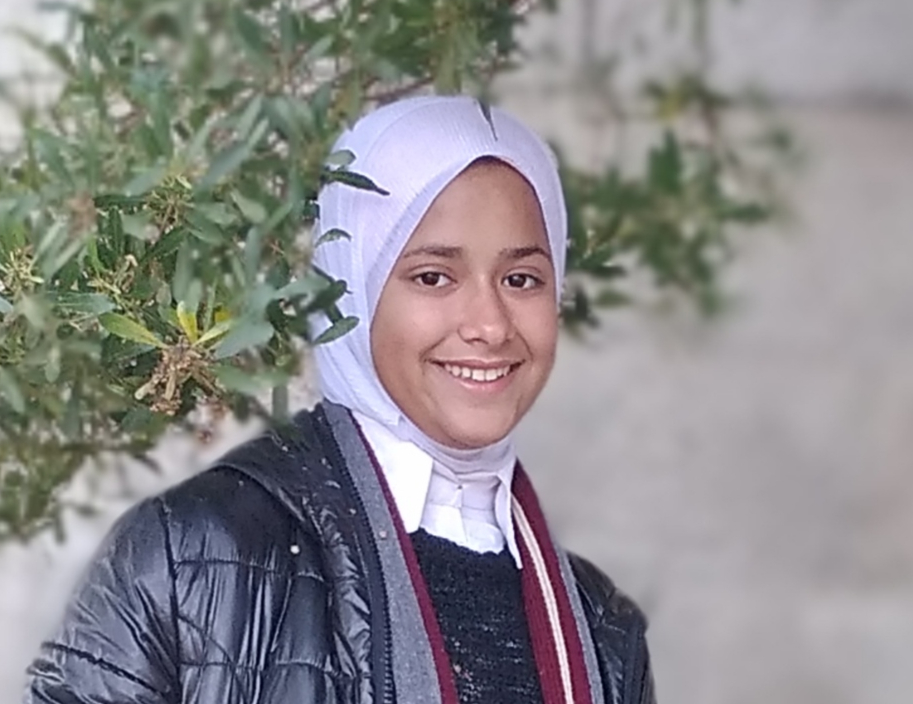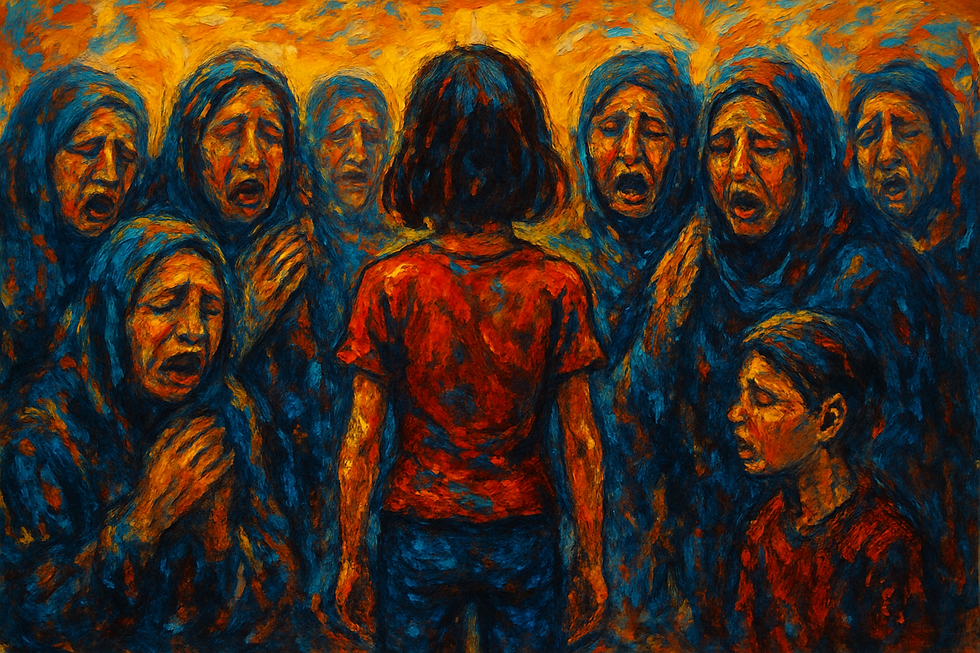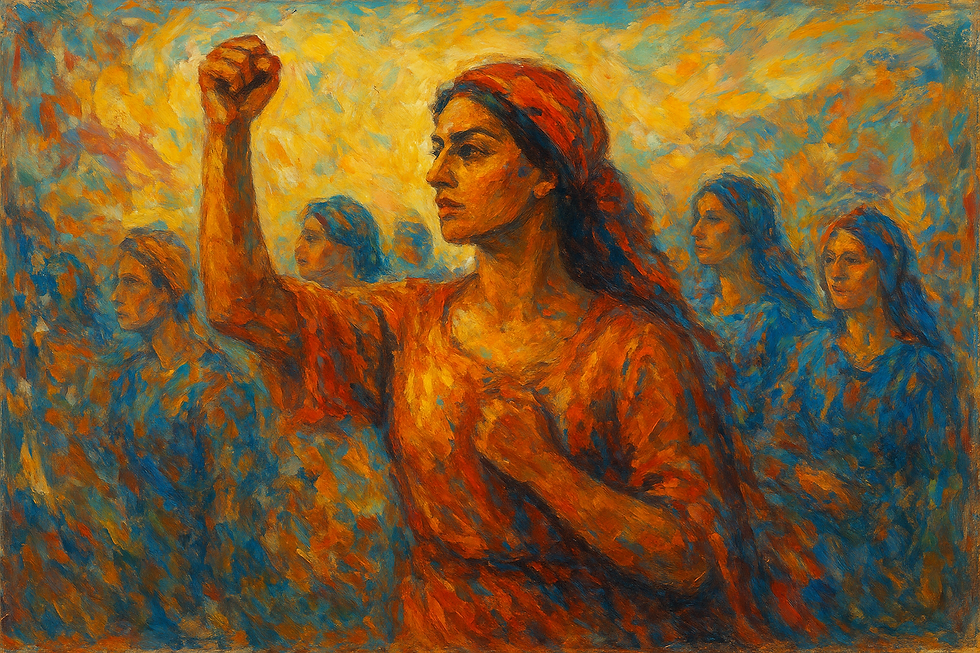I am a Child from Gaza: This is What I See in the Eyes of Our Women
- Areej Bilal

- Sep 28, 2025
- 3 min read
By Areej Bilal

I am a child from Gaza, and when I look into the eyes of our women, I see everything history has failed to tell. Every glance carries a story, and every half-smile conceals a long struggle between pain and hope.
Throughout the ages, some societies have tried to silence women, pushing them to the margins, denying them education, inheritance, and participation in decision-making, but these stories never truly disappeared. Queens, reformers, poets, and scholars have left their marks on the world: from Cleopatra and Queen Bilqis to Helen Keller, from women who led armies to those who inspired nations with their pens and ideas.
In recent centuries, women’s voices grew louder, as feminist movements demanded education, voting rights, political participation, and equality under the law, shaping historic changes that continue to unfold. Women did not seek privileges, they claimed their fundamental right to life, participation, and the ability to dream.
Today, despite tangible achievements, the path remains full of challenges. Girls fill universities, women occupy high-ranking positions, and lead influential economic, cultural, and media institutions, but wage gaps persist, stereotypes limit many dreams, and violence in its many forms haunts women at home, on the streets, and in workplaces. Political representation, though improving in some countries, often does not reflect their actual contributions to society.
In Gaza, these challenges are magnified. I see my mother and sisters facing a daily battle for survival: searching for water and food, managing households under siege, and navigating crowded, restricted streets.
They live under severe economic and political constraints, yet they continue to fight for education and work, refusing to give up their right to have a voice and a place in society. Within this struggle lies the true meaning of social justice we dream of: transforming slogans into reality, giving women genuine opportunities for a dignified life, ensuring their voices are heard, and recognizing that empowering them is not a luxury, it is the foundation of a strong society capable of overcoming siege and adversity.
Yet laws alone are not enough. Even if texts change, culture remains the broader battlefield. We need media that highlights successful role models rather than reinforcing weak images, initiatives that encourage girls to enter STEM and politics, and support for women-led small projects that create tangible change. Justice begins with acknowledging women’s intrinsic value as an inseparable part of society, not as an exception or secondary voice.
Despite all hardships, Gaza’s women remain a source of inspiration. I see them studying, working, finding ways to survive, and helping each other through the harshest moments. Some have lost homes or loved ones, yet they never lose the ability to rise. They teach us that strength does not come from easy circumstances but from a heart full of hope. Each day, they prove they are the true foundation of a cohesive society, and that empowering them is not optional, it is the path to a fairer, brighter future.
I am a child from Gaza, carrying these scenes in my heart, writing what I see. I believe social justice begins when we support women and grant them real opportunities. Without them, society remains incomplete, and hope feels distant. Despite the pain, our women teach us resilience and courage, giving us, the children, a dream that tomorrow can be fairer and more compassionate, and that hope can rise even from beneath the rubble.
Areej Bilal, born in 2009 in Gaza, is a young Palestinian writer. She writes from displacement, reflecting resilience and hope, aiming to share Palestine’s human stories through her words.
The opinions expressed in this article are solely the author’s and do not represent the views of Nisaba Media.




Comments